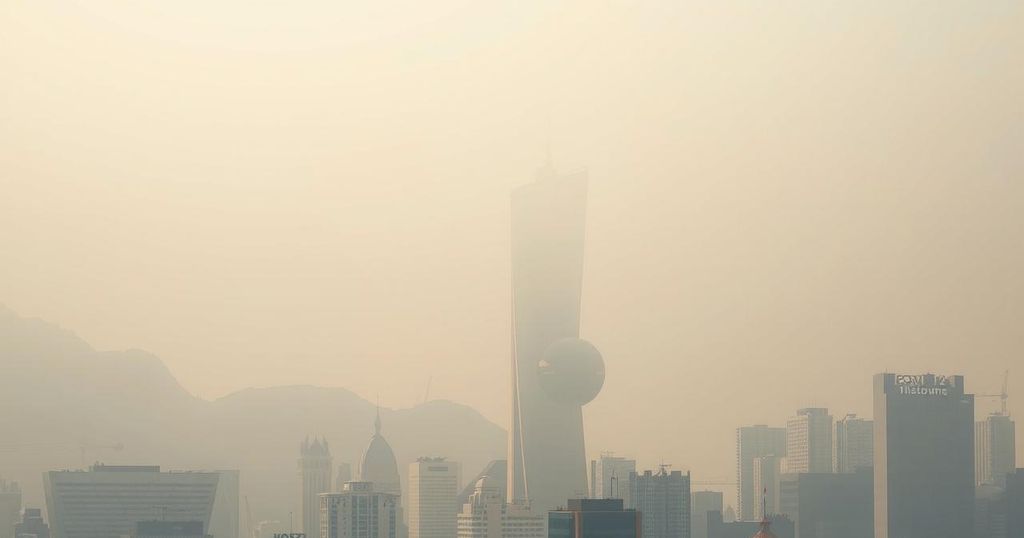In 2024, Bangladesh was the second most polluted country worldwide, with average PM2.5 levels of 78 µg/m³, significantly above WHO guidelines. Dhaka ranked as the third most polluted capital. Only seven countries met WHO standards, revealing substantial data gaps in air quality monitoring. Air pollution continues to pose critical health risks globally, linked to millions of deaths annually.
In 2024, Bangladesh was reported as the second most polluted country globally, with average smog levels exceeding World Health Organization (WHO) guidelines by over 15 times, as per data from Swiss air quality monitoring firm IQAir. The country exhibited an average PM2.5 level of 78 micrograms per cubic meter (µg/m³), only surpassed by Chad, which reported 128 µg/m³. Following Bangladesh were Pakistan, the Democratic Republic of the Congo, and India.
Dhaka, the capital of Bangladesh, ranked as the third most polluted capital, also with an average PM2.5 level of 78 µg/m³. New Delhi was identified as the most polluted capital globally, at 91.6 µg/m³, followed by N’Djamena in Chad and Kinshasa in the Democratic Republic of the Congo. Islamabad in Pakistan ranked fifth in terms of air pollution.
IQAir’s research highlighted that only seven countries met WHO air quality standards in 2024. The United States’ recent cessation of its global air quality monitoring efforts poses additional challenges to combating smog. The only countries that met WHO’s standards last year included Australia, New Zealand, and several Caribbean nations.
India had a 7% decline in its average PM2.5 levels, bringing it to 50.6 µg/m³; however, it still houses 12 of the world’s 20 most polluted cities. The most polluted city in India, Byrnihat, recorded an alarming average PM2.5 level of 128 µg/m³.
The analysis was derived from over 40,000 air quality monitoring stations distributed across 138 countries. WHO recommends a PM2.5 maximum level of 5 µg/m³, a threshold met by only 17% of cities worldwide as of 2024. Significant data gaps, especially in Asia and Africa, impede a comprehensive understanding of global air quality.
Frank Hammes, Global CEO of IQAir, stated that “Air pollution remains a critical threat to both human health and environmental stability, yet vast populations remain unaware of their exposure levels.” He underscored that access to clean air is recognized as a universal human right.
Alarmingly, the WHO reported that 99% of the global population resides in areas failing to meet recommended air quality levels. Air pollution stands as the second leading global risk factor for death and reigns as the primary cause of mortality among children under five. In 2021 alone, it caused approximately 8.1 million deaths, with 58% linked to ambient PM2.5 pollution, highlighting the serious health repercussions associated with high pollution exposure.
In summary, Bangladesh experiences alarming levels of air pollution, standing as the second most polluted country in the world. The WHO’s standards for air quality are unmet by a vast majority of nations, and significant challenges arise from data gaps in pollution monitoring. The detrimental health impacts of PM2.5 exposure underline the urgent need for action and the recognition of clean air as a fundamental human right.
Original Source: asianews.network






